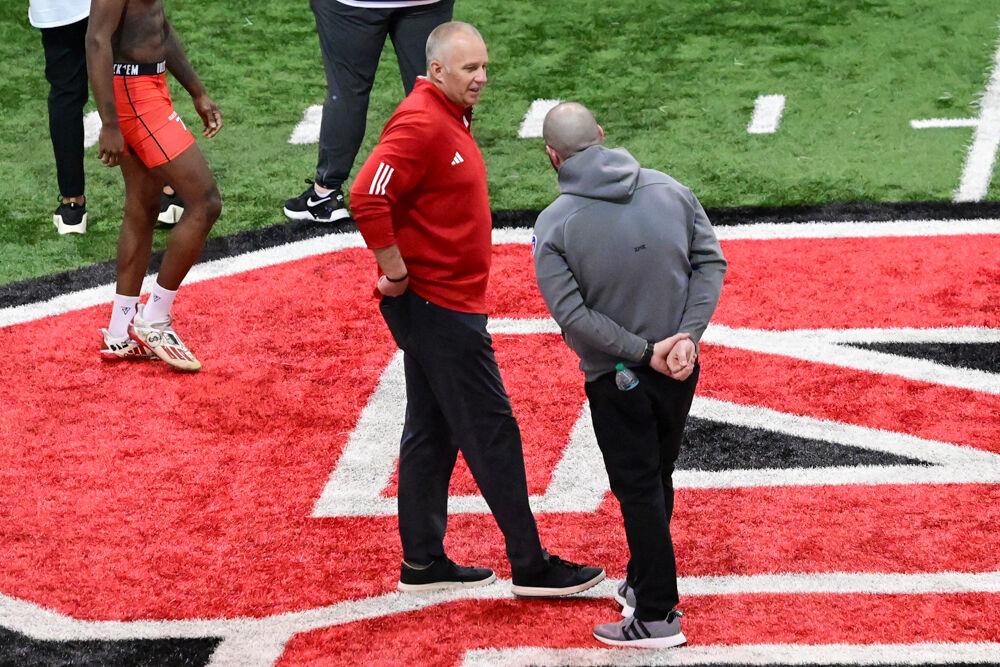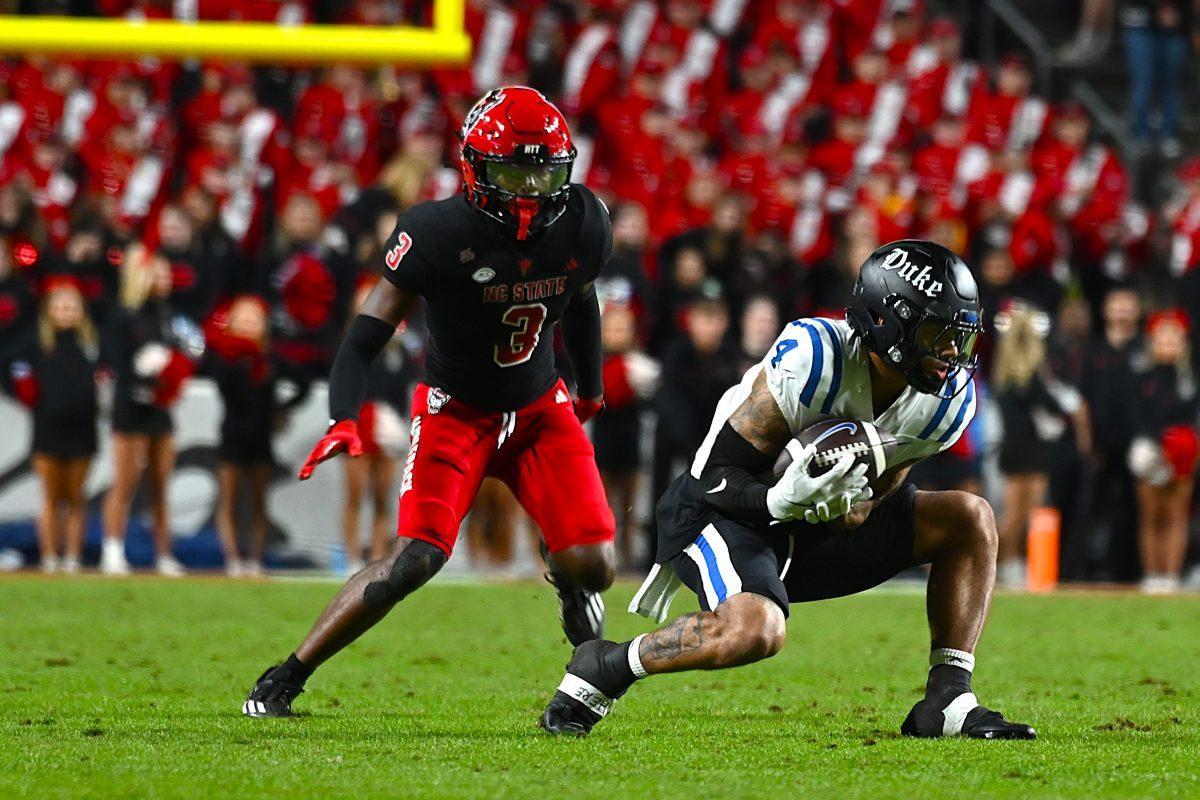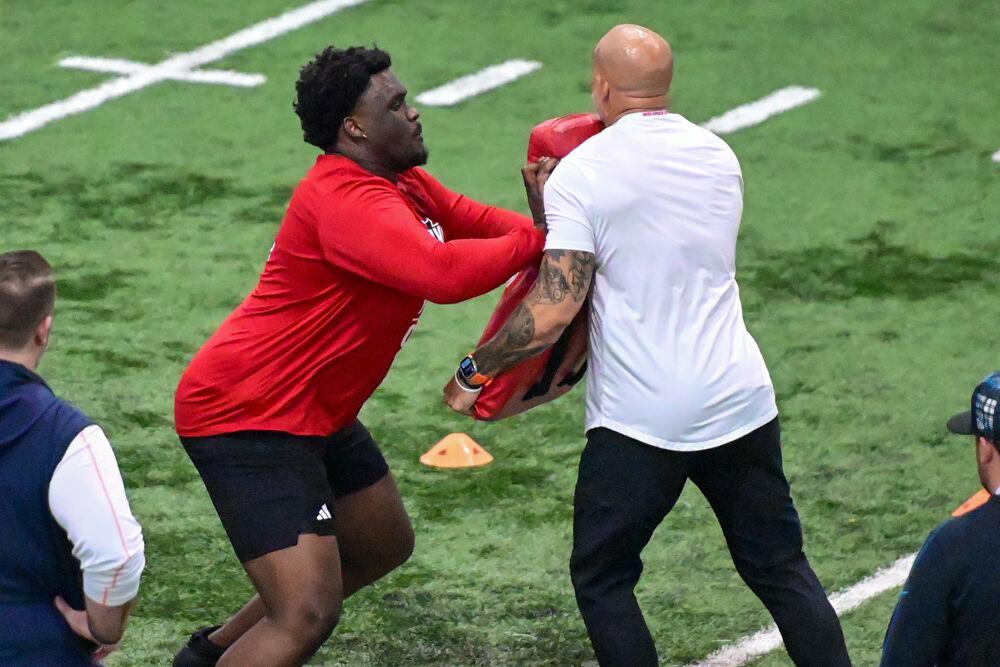When graduate quarterback Brennan Armstrong was booed off the field after throwing a game-sealing interception against Louisville, most NC State football fans thought and hoped that would be the last time they’d see Armstrong. Those wishes seemingly came true when sophomore quarterback MJ Morris was announced as the starting quarterback just days later.
As most know by now, Morris played four games and then decided to sit out the rest of the season to preserve his redshirt. Fans of the Pack were shocked by the decision and saddened because they knew that meant Armstrong would be the lead signal caller once again.
There was good reason for this agony because before Armstrong was benched. He had thrown more interceptions than touchdowns, which is why what came next could only have been written in Hollywood.
Not only was Armstrong thrown back into the fire, but he was tasked with leading the Pack against two teams it had historically struggled against on the road and finishing at home against its most hated rival. It was a three-game stretch the Virginia transfer was ready for — instead of feeling sorry for himself after getting benched, he continued to work, and as junior cornerback Aydan White said, he handled the situation like a “grown-ass man.”
His first stop on the redemption tour was at Wake Forest, a place the Pack had only won at once since 2003. Against the Demon Deacons, Armstrong led the team in rushing with 96 yards and a rushing touchdown. This was nothing new as the captain of the offense was an effective runner before he was benched, but his performance through the air greatly improved since his last start.
Armstrong threw the ball with great timing and accuracy in his first start back, completing over 70% of his passes including a 20-yard dart to redshirt sophomore receiver Julian Gray for a touchdown. The most important thing the signal caller did was not turn over the ball, which he was much maligned for the first time around.
Suddenly, there was a newfound confidence in Armstrong spanning from his teammates to everyone in Wolfpack nation. Everyone could see Armstrong was playing with more poise, and he understood what he had to do to make the offense successful.
After taking down Wake Forest, Armstrong and the Pack faced another daunting task as they traveled to Blacksburg, Virginia, to play in one of the loudest environments in college football. NC State hadn’t won at Lane Stadium since 2004, but Armstrong and company were determined to change that just as they did against Wake Forest.
So what did Armstrong do to secure the Pack’s first win at Virginia Tech in nearly 20 years? He led the offense to five straight touchdown drives spanning across the second and third quarters. The graduate accounted for four of the touchdowns with two on the ground and two through the air.
Once again, Armstrong did not commit a single turnover while also completing just under 70% of his passes. Taking care of the ball and completing passes at a high clip was something he wasn’t doing during his first five starts — a sign of growth and hard work by the veteran quarterback.
As if winning back-to-back games on the road in historically tough environments wasn’t enough, Armstrong decided to save his best for last against UNC-Chapel Hill. The graduate quarterback will live in Wolfpack lore forever after his performance against the Tar Heels.
All Armstrong did against Carolina was set his season-high in passing yards and passing touchdowns. He picked apart the Tar Heels’ defense with lethal precision, completing 71% of his passes for 334 yards. The Pack offense spotted its defense with a 26-7 lead at half thanks to Armstrong’s elite decision-making and timely throws.
Stop me if you’ve heard this before, but Armstrong once again did not turn the ball over against the Tar Heels, meaning he did not commit a single turnover in his second stint as the Wolfpack quarterback. It can’t be understated how impressive and important that is, given how well the Pack defense was playing when Armstrong came back. By not giving the ball to the other team, it allowed the defense to rest and it was never put in bad field position.
In Armstrong’s sequel as the Pack’s lead man, he compiled nine touchdowns to zero interceptions, all while leading the Wolfpack to three straight victories and ending the season on a five-game win streak.
If you want an example of how to deal with adversity with perseverance, look no further than Armstrong’s situation. He transferred to NC State knowing it was his last season of college football and was benched during that final season. He could’ve easily quit on his team after having his starting job taken, but he worked to get better, and we all saw the proof of that in his last three games.
Armstrong will always be remembered for being a “grown-ass man.”













